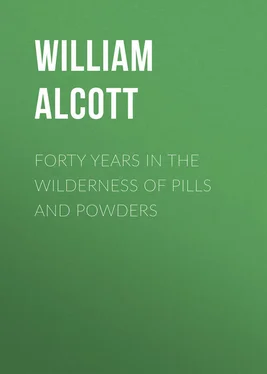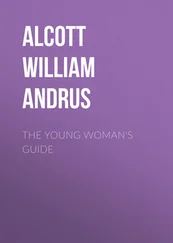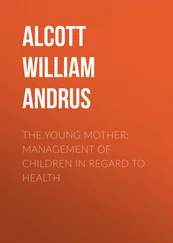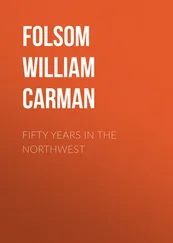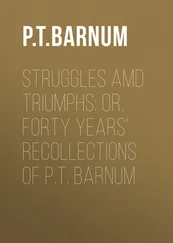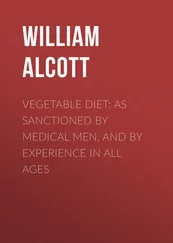William Alcott - Forty Years in the Wilderness of Pills and Powders
Здесь есть возможность читать онлайн «William Alcott - Forty Years in the Wilderness of Pills and Powders» — ознакомительный отрывок электронной книги совершенно бесплатно, а после прочтения отрывка купить полную версию. В некоторых случаях можно слушать аудио, скачать через торрент в формате fb2 и присутствует краткое содержание. Жанр: foreign_antique, foreign_prose, на английском языке. Описание произведения, (предисловие) а так же отзывы посетителей доступны на портале библиотеки ЛибКат.
- Название:Forty Years in the Wilderness of Pills and Powders
- Автор:
- Жанр:
- Год:неизвестен
- ISBN:нет данных
- Рейтинг книги:4 / 5. Голосов: 1
-
Избранное:Добавить в избранное
- Отзывы:
-
Ваша оценка:
- 80
- 1
- 2
- 3
- 4
- 5
Forty Years in the Wilderness of Pills and Powders: краткое содержание, описание и аннотация
Предлагаем к чтению аннотацию, описание, краткое содержание или предисловие (зависит от того, что написал сам автор книги «Forty Years in the Wilderness of Pills and Powders»). Если вы не нашли необходимую информацию о книге — напишите в комментариях, мы постараемся отыскать её.
Forty Years in the Wilderness of Pills and Powders — читать онлайн ознакомительный отрывок
Ниже представлен текст книги, разбитый по страницам. Система сохранения места последней прочитанной страницы, позволяет с удобством читать онлайн бесплатно книгу «Forty Years in the Wilderness of Pills and Powders», без необходимости каждый раз заново искать на чём Вы остановились. Поставьте закладку, и сможете в любой момент перейти на страницу, на которой закончили чтение.
Интервал:
Закладка:
A much better trade had now, in 1820, sprung up with the South. The North – the great nursery of America – had still a surplus of young men who wanted to go somewhere. A part of them found their way to Carolina and Georgia, and engaged during the winter, and occasionally through the year, in teaching; while another part labored on their canals and railroads and in their shops. This was to furnish the South with a commodity of real value, for which we received in return a fair compensation. Besides, it had a better effect than clock and tin peddling, both on the seller and buyer.
To improve my pecuniary condition, and to acquaint myself with the world, I prepared to embark for the South. My purpose was to teach. It was the beginning of October, and yellow fever was said to be raging in Charleston, where I purposed to disembark. Was it, then, safe for me to go? Should the prospect of doing good, improving my mind, and bettering my condition in many other respects, weigh against the danger of disease; or was it preferable that I should wait?
My numerous friends counselled me according to their various temperaments and prepossessions. The strong and vigorous in body and mind said, Go on ; the feeble and timorous and trembling interposed their caution. But the vessel was ready and would soon sail; and I saw on board many of my acquaintances. The temptation was before me, and was great; the dangers, though many, were remote – the dangers of the sea excepted. For these, it is true, I was, like everybody else, entirely unprepared, having never before in my life crossed more than a single river. I was moreover exceedingly timid.
One kind friend – kind, I mean, in general intention – who had been many years at the South, amid the ravages of the gold fever, as well as other fevers more or less yellow, whispered me just at this critical moment, "Take with you a box of Lee's Windham Bilious Pills; and as soon as you arrive at Charleston, make it your rule to swallow, every other day, one of these pills. That will prevent your getting the fever. I have often tried it, and always with success."
My friend's words gave me more courage than his pills. I saw that he had been in the midst of sickness and had lived through it. Why might not I? My mind was soon made up to proceed on the journey.
We sailed from New Haven in Connecticut, and were seventeen days on our passage. When we reached Charleston, either the yellow fever had spent itself or it had not recently been there, except in a few rare instances. I found no use for pills of any kind, except such as grew on fruit-trees – the apple, peach, orange, persimmon, etc., or such as were the products of the corn, potato, and rice fields; nor did I ever take any other while I remained in the South. A queer idea, I often said to myself, that of taking poison while a person is well, in order to prevent becoming sick! In any event, I did not do it.
There was sickness in the country, however, if not in the city; and I was much and often exposed to it. But what then? How would one of Lee's pills defend me from it, even for two days? I preferred to eat and drink and sleep correctly, and then trust to my good fortune and to Him who controlled it, rather than to nauseous and poisonous medicine. And I had my choice, and with it a blessed reward. I was in the low country of North and South Carolina and Virginia six months or more, and often and again much exposed to disease, and yet I never had a sick day while I remained there. And yet, as I have before intimated, I never took a particle of medicine during the whole time.
Once, indeed, I was beguiled into the foolish habit of using French brandy with my dinner, under the idea that it would promote digestion. But I did not continue it long; and I verily believe that it did me more harm than good while I used it; for I have at no other period of my life suffered so much from dyspeptic tendencies as during the summer which followed this temporary indulgence of brandy with my dinner.
During my wanderings in the South, I had, much of the time, a fellow traveller, who, though he took no medicine, was less cautious than myself, and less fortunate. Perhaps his very recklessness served as a warning to me. In truth, without being much of a theologian, I have sometimes thought that the errors of mankind were intended in the divine plan – at least in part – for this very end. Happy, then, if this is so, are they who make a wise use of them!
CHAPTER X
DR. SOLOMON AND HIS PATIENT
I have said that my fellow traveller was less cautious than myself, and have intimated much more. He was in some respects cautious, and yet in others absolutely reckless. When hot and thirsty, for example, instead of just rinsing out his mouth and swallowing a very little water, he would half-fill his stomach with some of that semi-putrid stuff, ycleped water, which you often find in Virginia and the Carolinas; and when hungry, he would eat almost any thing he could lay hold of, and in almost any quantity, as well as at almost any hours, whether seasonable or unseasonable.
This course of conduct seemed to answer very well for a few months; but a day of retribution at last came. He was then in Norfolk, in Virginia. I had been absent from the place a few weeks, and on my return found him sick with a fever, and without such assistance as was absolutely and indispensably necessary. There were Yankees in the place in great numbers, and some of them were his personal acquaintances and friends; but they had hitherto refused to come near him, lest they should take the fever.
I proceeded to take care of him by night and by day. At the suggestion of an old citizen, in whom I placed great confidence, Dr. Solomon was called in as his physician. There was some bleeding and drugging, and a pretty constant attendance for many weeks; but the young man finally recovered.
If you ask what this chapter has to do with my medical confessions, I will tell you. Dr. Solomon was an old school physician, and made certain blunders, which I am about to confess for him. He prescribed – as very many of us his medical brethren formerly did, for the name of a disease rather than for the disease itself, just as it now appeared.
Thus, suppose the disease was typhus fever; in that case he seemed to give just about so many pills and powders every day, without much regard to the circumstances; believing that somehow or other, and at some time or other, good would come out of it. If his patient had sufficient force of constitution to enable him to withstand both the disease and the medicine, and ultimately to recover, Dr. S. had the credit of a cure; not, perhaps that he claimed it, – his friends awarded the honor. If the patient died, it was on account of the severity of the disease. Neither the doctor nor his medicine was supposed to be at fault. Some, indeed, regarded it as the mysterious work of Divine Providence.
Dr. S. attended my young companion in pedestrianism a long time, and sometimes brought a student into the bargain. He probably kept his patient insane with his medicine about half the time, and greatly prolonged his disease and his sufferings. But he knew no better way. He was trained to all this. The idea that half a dozen careful visits, instead of fifty formal ones, and a few shillings' worth of medicine instead of some twenty or thirty dollars' worth, would give the young man a better prospect of recovery than his own routine of fashionable book-dosing and drugging, never for once, I dare say, entered his head. And yet his head was large enough to hold such a simple idea, had it been put there very early; and the deposit would have done much to make him – what physicians will one day become – a rich blessing to the world.
Reader, are here no confessions of medical importance? If not, bear with me awhile, and you will probably find them. We have yet a long road to travel, and there are many confessions to be made in which I have a personal concern and responsibility, and, as you may perhaps conclude, no small share of downright culpability.
Читать дальшеИнтервал:
Закладка:
Похожие книги на «Forty Years in the Wilderness of Pills and Powders»
Представляем Вашему вниманию похожие книги на «Forty Years in the Wilderness of Pills and Powders» списком для выбора. Мы отобрали схожую по названию и смыслу литературу в надежде предоставить читателям больше вариантов отыскать новые, интересные, ещё непрочитанные произведения.
Обсуждение, отзывы о книге «Forty Years in the Wilderness of Pills and Powders» и просто собственные мнения читателей. Оставьте ваши комментарии, напишите, что Вы думаете о произведении, его смысле или главных героях. Укажите что конкретно понравилось, а что нет, и почему Вы так считаете.
